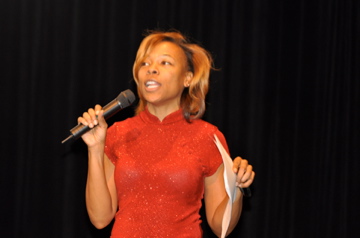

Today we’d like to introduce you to Chandra Banks.
Chandra, can you briefly walk us through your story – how you started and how you got to where you are today.
I was born in Cambridge in 1967. My parents graduated from the public schools here but they sent me to a private school Buckingham Browne & Nichols for 11 years. My last two years of high school were spent at Cambridge Rindge & Latin School. I fell in love with the school and the experience. Upon graduation I enrolled at Spelman College in Atlanta (all Black women’s college) and eventually earned a Master’s degree from the Harvard Graduate School of Education with a focus on Risk Prevention and Counseling (now Prevention Science & Practice).
My wonderful times at CRLS as a high school student were only interrupted by the violent conflicts associated with the crack epidemic of the late 1980’s and this bothered me. I met students whose families had been impacted by the drug. Some of my peers sold these drugs to help their families survive, but it mostly ended in fights, shootings and arrests. I chose to focus on the barriers to academic achievement while I was a student at Spelman College and achieved a degree in English with a minor in Education. When I returned to Massachusetts, I worked for a variety of child serving agencies. It was my work for the Department of Child and Family Services, preparing teens for independent living when their cases were closing with the Department and going home was not an option that had the most significant impact on me.
The Department went to great lengths to provide these young people with the “soft skills” they would need to be successful adults. We had a very good curriculum and we also had the time and the skills to implement this with them. It did not always work for reasons that we could not control, such as mental illness, and economic issues, but the young people were very grateful for the assistance. This experience weighed on my mind as I matriculated though Harvard and took a job working on a Federal initiative to coordinate non-academic programming for 7 public schools in (6th, 7th and 8th grades) the city of Cambridge.
The greatest thing I learned from my family, excellent teachers, research and my work experiences was and still is that people need each other to feel safe and to learn. I took a position as the School Wellness Coordinator for a K-8 charter school with above average numbers of Black (from all over the world) and poor (free and reduced lunch eligible) students who had been experiencing low academic performance. Through the development of close and bonded relationships between staff, students, the board, families, the community and school administration we were able to set the stage to improve academic achievement for our students.
Increasing communication skills for everyone associated with the school and developing an academically focused school climate, the talent and resources that we had become highly effective and collaborative. The results of these changes were demonstrated in a drastic reduction in disciplinary actions, an increase in punctual attendance for staff and students, an increase in parent participation, a decrease in staff turnover as well as an increase in overall morale as measured by surveys. After three years of this work, MCAS scores for those students were higher than Black students in both Cambridge and Boston.
In August of 2006 I became the first District Wide Conflict Mediator for the Cambridge Public Schools District. I began by providing Mediation Services to employees of the District, I started a Mediation Program at the Cambridge Rindge & Latin High School in 2007 for students. This CRLS team of trained Mediators provides services all over the city of Cambridge as well as in the MBTA Police Station for students who are arrested on the MBTA property for incidents of theft and assault, when the victim chooses mediation as opposed to the court process. They have received awards from the Cambridge Peace Commission, the Community Dispute Settlement Center and has provided a panel to share their experiences and a presentation on the School to Prison Pipeline to the Essex County Peer Mediation Forum. The team was also included in the Scotland National Peer Mediation Conference via Skype!
Over the years I have begun to implement Restorative Practices in the District for staff and students returning from suspension, as alternative to suspension or expulsion for students, and for classroom climate initiatives. This has all been very well received by teachers, administrators, families and students. My role also includes sharing data and statistics about conflict and the program, in the schools and in the community. I provide training in Mediation, Conflict Management and Restorative Practices to staff, families, students, police and other collaborating agencies that have contact with our students.
I enjoy my work and feel that I am making a difference in the lives of the people that I come in contact with. They benefit from having training and services that increase communication, collaboration and as a result academic achievement for students as well as a more satisfying work environment for adults in the District. I have been told that they skills that I teach and the services that I provide are useful and delivered in a respectful way. That is exactly what I want.
Has it been a smooth road?
The struggles are:
– People are afraid to stop teaching academics to focus on setting up a positive environment for learning
– People think that their style is universal and others are incompetent if they do not like or understand that style
-Social media reduces patience, empathy and human understanding of difference
-People are ashamed of experiencing conflict so they are reluctant to ask for help
-The United States is a “power over” society but not a “power with” culture. It is hard to teach the latter in the context of the former.
So let’s switch gears a bit and go into the Cambridge Public Schools District story. Tell us more about the business.
Cambridge Public Schools District serves a diverse community that is often in flux as residents move in and out of the city frequently. We serve families and students from the extreme ends of the socio-economic ladder, those only who only speak English and those who are fluent in multiple languages. There a few multi-generational families still living here, as well as families here temporarily due to work and educational pursuits. We do our best to provide a great experience for all of our families and the staff that work here.
How do you think the industry will change over the next decade?
Social media/video games/ have had a huge impact on impulse control and patience. I think this will result in more suicide and violence in this country, especially for children.
Parents are paying attention to phones and computers over connecting with their children. This causes frustration for children and the children bring that frustration to school. They attack teachers with the anger they feel toward their parents.
The economy has demanded that the working poor put in more hours for the same amount of money and the society has raised its standards for materialism. Therefore, parents are gone more to provide material goods for children who actually need focused attention.
I think that the “haves” will separate themselves from the “have nots” more efficiently.
Teachers will have to choose. The ones who work with the “have nots” will see more violence and less academic focus.
Contact Info:
- Address: Chandra Banks Cambridge Public Schools
- Website: cpsd.us
- Phone: 617-217-8106
- Email: CBanks@cpsd.us
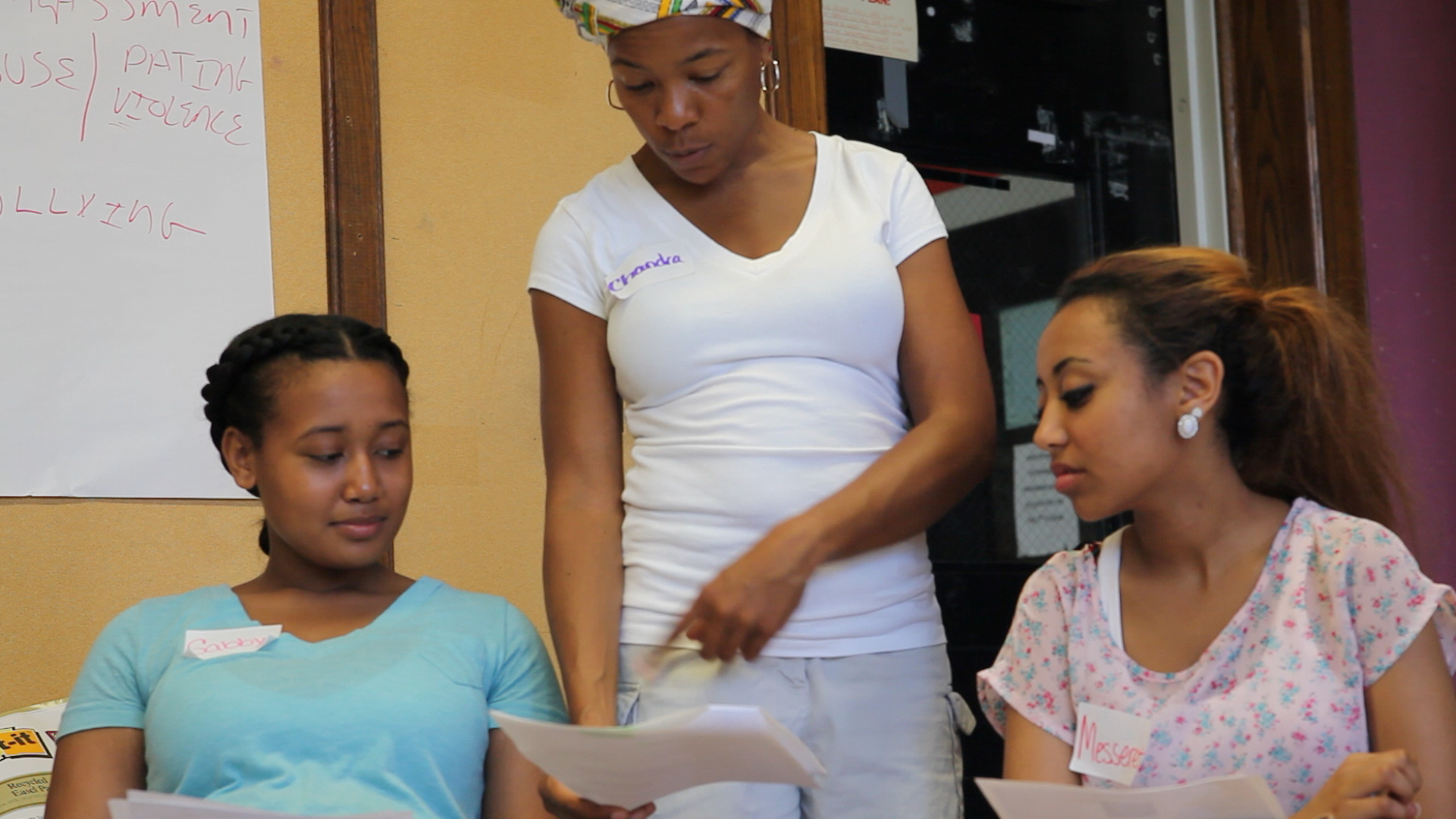

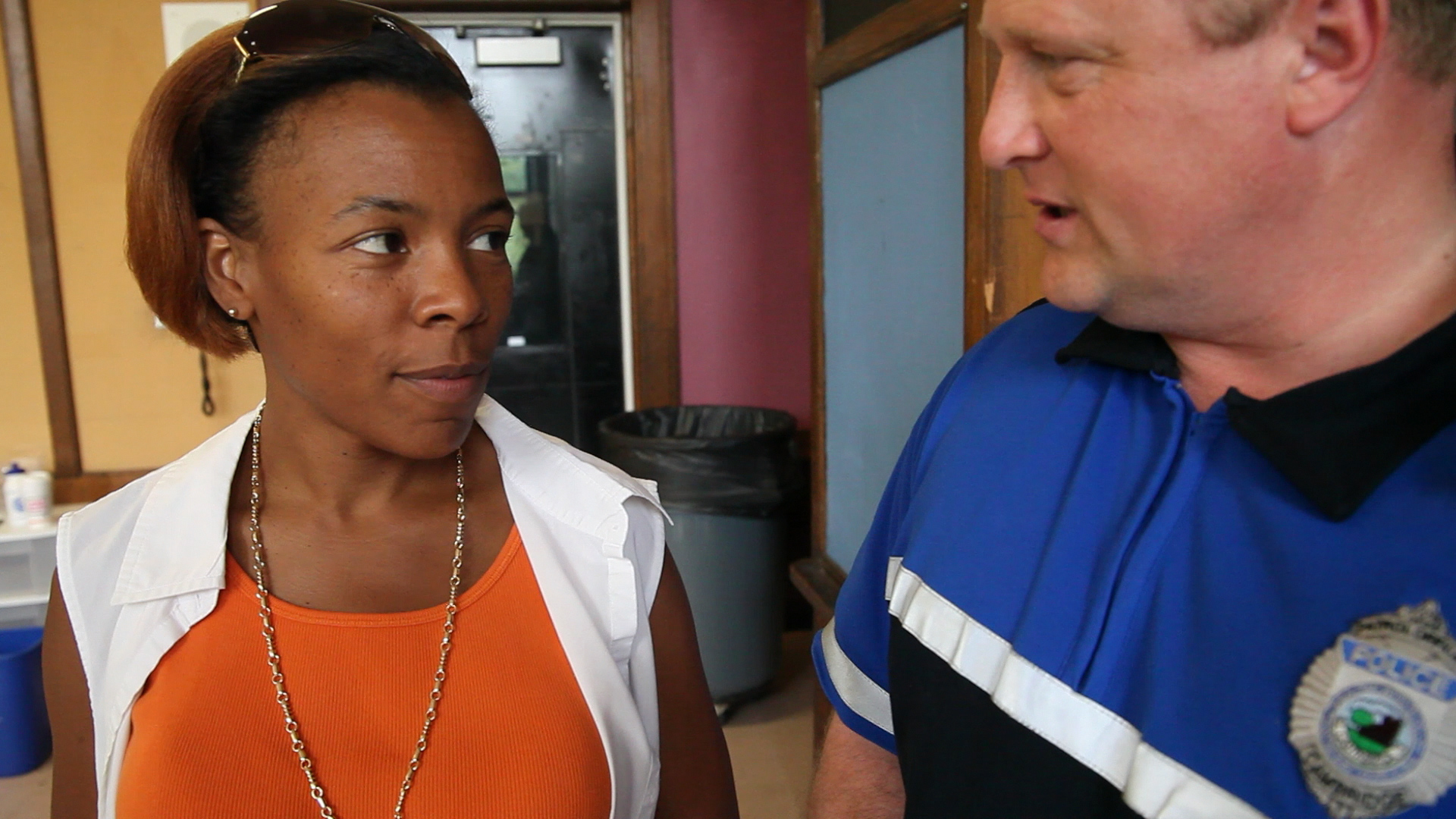
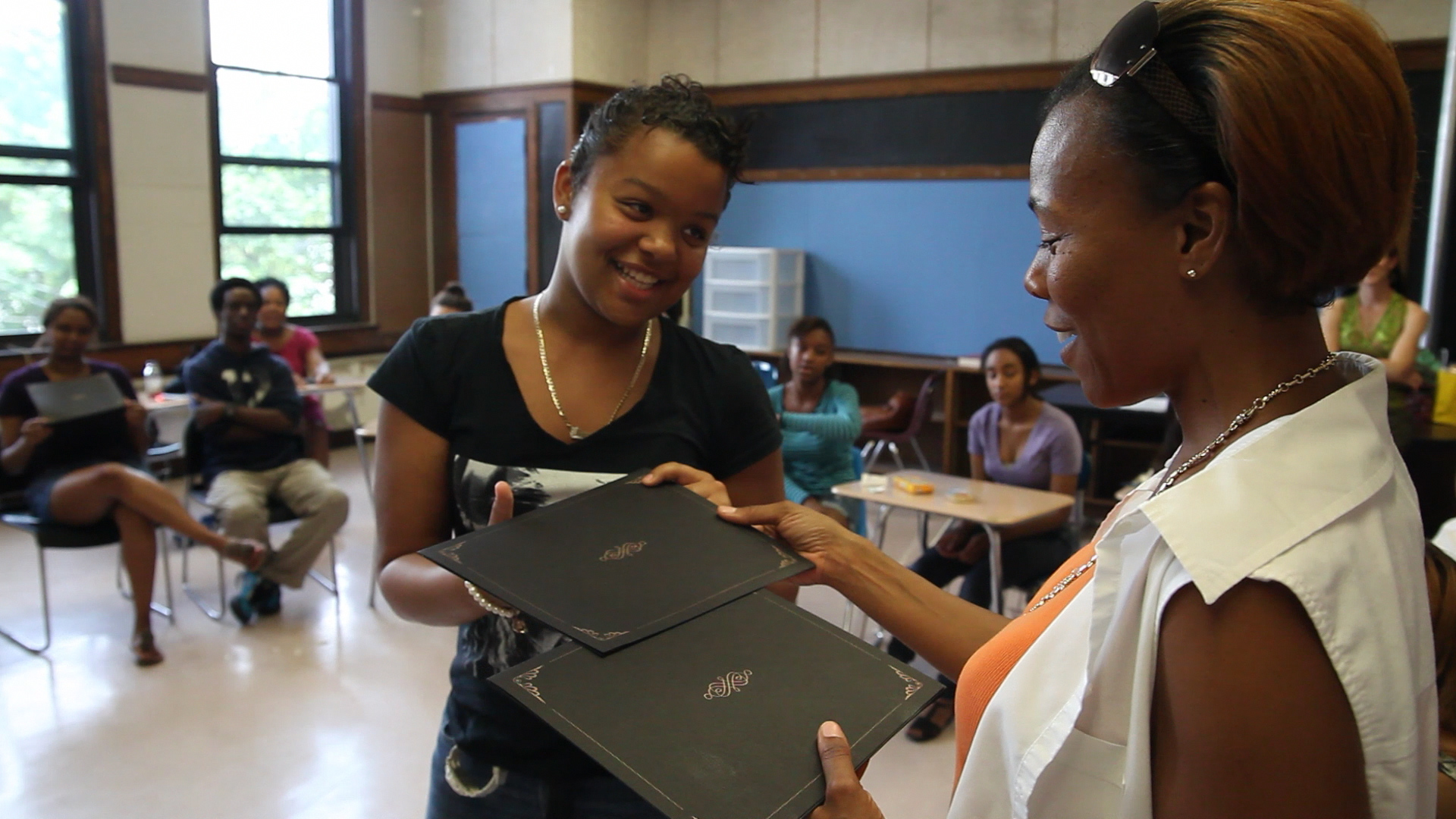
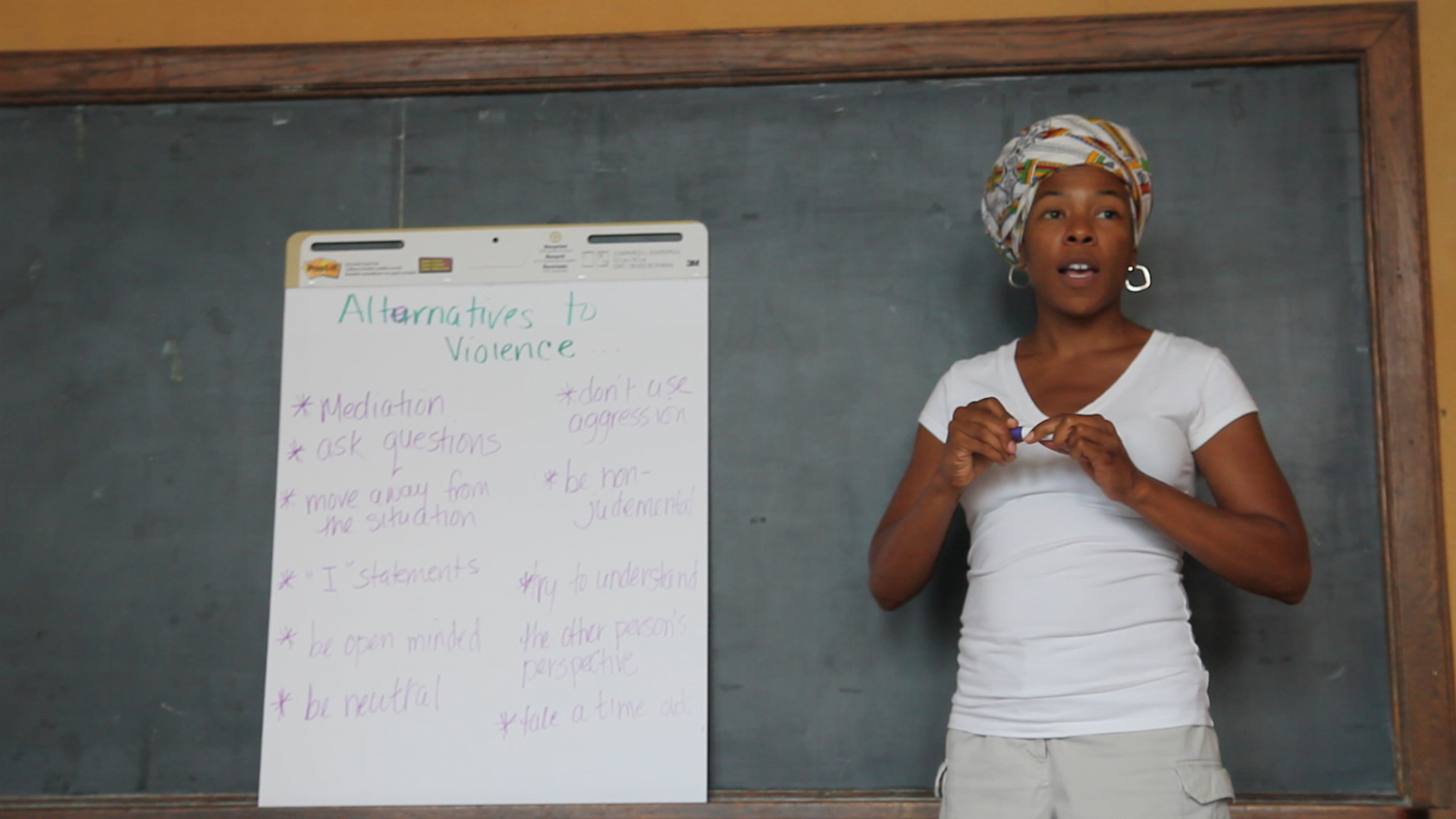
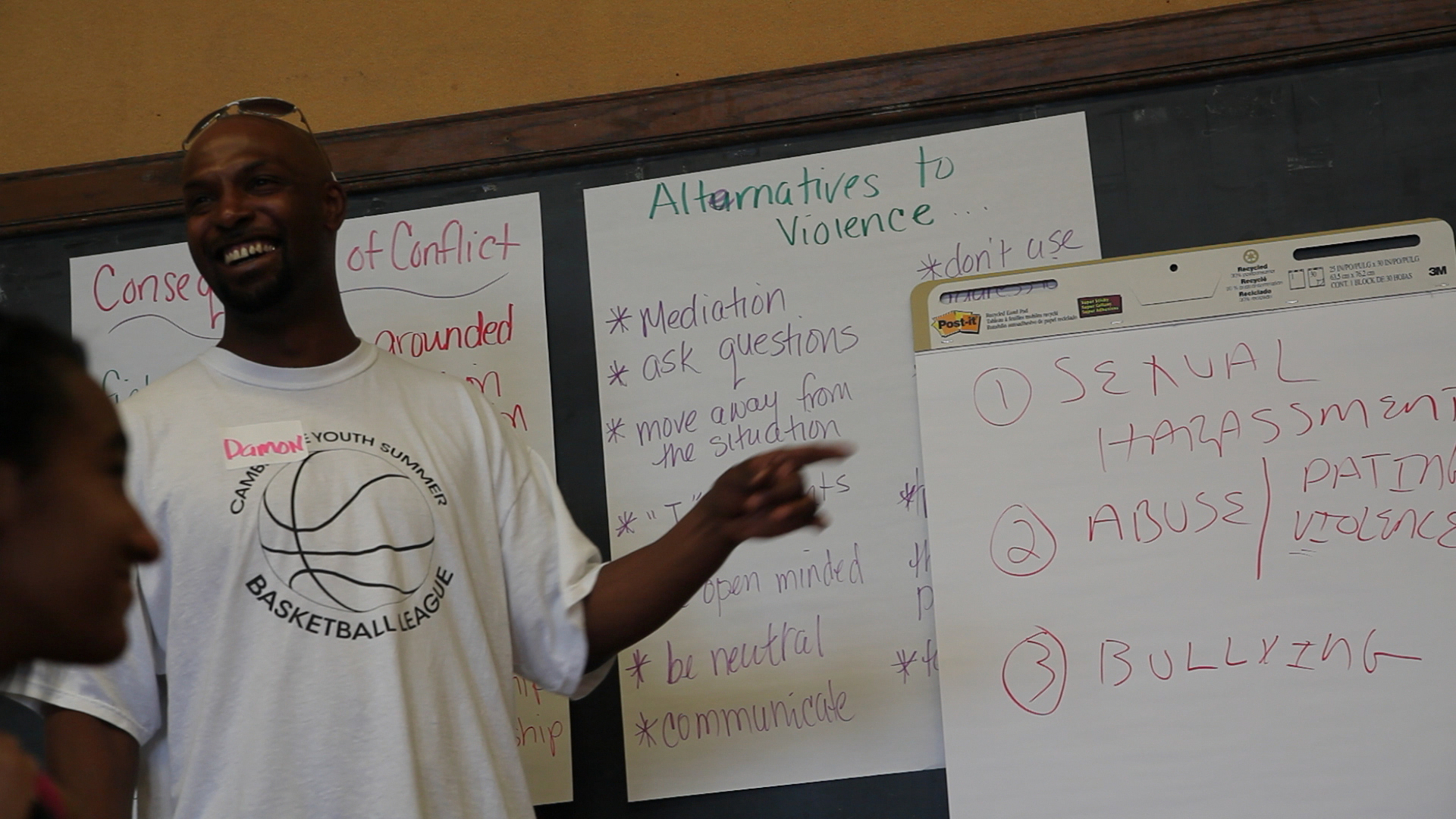
Image Credit:
Chandra Banks (me), Damon Banks (my brother), Gabbi F, Bekele, & Messeret Grensi, Alexandra Nascimento-Rodriguez, Indira Gooding, (my daughters), me and Officer Michael “Whitey” Daniluk
Getting in touch: BostonVoyager is built on recommendations from the community; it’s how we uncover hidden gems, so if you know someone who deserves recognition please let us know here.













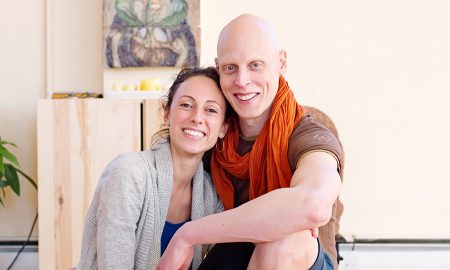


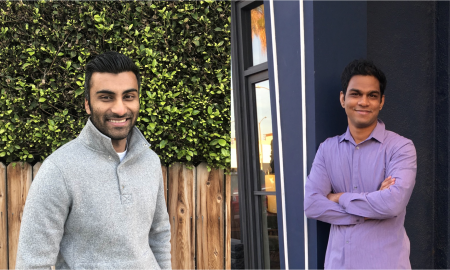
Mattie Deed
July 6, 2018 at 8:04 pm
Ms. Chandra Banks what a blessing; you are a gem and educator for future generations! I enjoyed reading your article and found it very informative especially that you noted and touched on mental illness. Many of us won’t acknowledge that our country has fallen short when we don’t address mental illness. I know it’s stigmatized but we need to deconstruct the stigma associated with this epidemic and reach out for help to bring wellness to the homes of many families throughout New England and around the US. I am sadden by the gun violence and the massacres that happens from month to month then we see mental illness at it’s best. We have got to reach beyond the walls to heal our children and allow them to speak up, talk up and let others know when they are hurting or something is not feeling right. We have got to be better. Thank you so much; love you for the work you do for families.